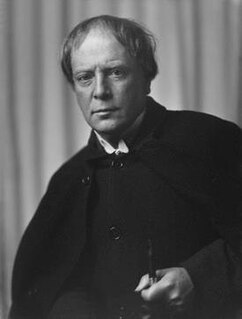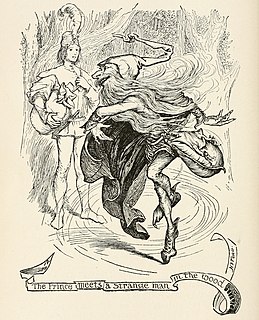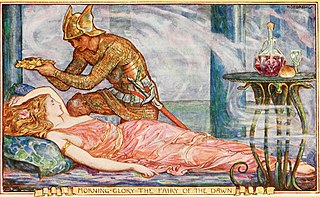This article needs additional citations for verification .(October 2013) |
Puck: The Unofficial Journal of the Irrepressible is a literary magazine that was published by San Francisco-based Permeable Press in the early and mid-1990s.
This article needs additional citations for verification .(October 2013) |
Puck: The Unofficial Journal of the Irrepressible is a literary magazine that was published by San Francisco-based Permeable Press in the early and mid-1990s.
Puck was founded by Brian Charles Clark in 1984. [1] Edited by Clark under the auspices of his imprint, Permeable Press, the magazine published numerous writers in the literary underground, including Hugh Fox, Michael Hemmingson, Lance Olsen, Mark Amerika, Freddie Baer, Susan Birkeland, Eurudice, Adrienne Greenheart, Mary Leary, Doug Rice, Morgan Songi, Tolek, Larry Tomoyasu, Jasmine Sailing and Martin Wayne. [2] In 1997 Permeable Press sold the magazine to Cambrian Publications. [1]

Clark Ashton Smith was an American writer and artist. He achieved early local recognition, largely through the enthusiasm of George Sterling, for traditional verse in the vein of Swinburne. As a poet, Smith is grouped with the West Coast Romantics alongside Joaquin Miller, Sterling, and Nora May French and remembered as "The Last of the Great Romantics" and "The Bard of Auburn". Smith's work was praised by his contemporaries. H. P. Lovecraft stated that "in sheer daemonic strangeness and fertility of conception, Clark Ashton Smith is perhaps unexcelled", and Ray Bradbury said that Smith "filled my mind with incredible worlds, impossibly beautiful cities, and still more fantastic creatures".

Arthur Machen was the pen-name of Arthur Llewellyn Jones, a Welsh author and mystic of the 1890s and early 20th century. He is best known for his influential supernatural, fantasy, and horror fiction. His novella The Great God Pan has garnered a reputation as a classic of horror, with Stephen King describing it as "Maybe the best [horror story] in the English language." He is also well known for "The Bowmen", a short story that was widely read as fact, creating the legend of the Angels of Mons.

Speculative fiction is a broad category of fiction encompassing genres with elements that do not exist in reality, recorded history, nature, or the present universe. Such fiction covers various themes in the context of supernatural, futuristic, and other imaginative realms. The genres under this umbrella category include, but are not limited to, science fiction, fantasy, horror, superhero fiction, alternate history, utopian and dystopian fiction, and supernatural fiction, as well as combinations thereof.

Granta is a literary magazine and publisher in the United Kingdom whose mission centres on its "belief in the power and urgency of the story, both in fiction and non-fiction, and the story’s supreme ability to describe, illuminate and make real." In 2007, The Observer stated: "In its blend of memoirs and photojournalism, and in its championing of contemporary realist fiction, Granta has its face pressed firmly against the window, determined to witness the world."
Damien Francis Broderick is an Australian science fiction and popular science writer and editor of some 74 books. His science fiction novel The Dreaming Dragons (1980) introduced the trope of the generation time machine, his The Judas Mandala (1982) contains the first appearance of the term "virtual reality" in science fiction, and his 1997 popular science book The Spike was the first to investigate the technological singularity in detail.

The Royal Society of Literature (RSL) is a learned society founded in 1820, by King George IV, to "reward literary merit and excite literary talent". A charity that represents the voice of literature in the UK, the RSL has about 600 Fellows, elected from among the best writers in any genre currently at work. Additionally, Honorary Fellows are chosen from those who have made a significant contribution to the advancement of literature, including publishers, agents, librarians, booksellers or producers. The society is a cultural tenant at London's Somerset House.

Weird fiction is a subgenre of speculative fiction originating in the late 19th and early 20th centuries. Weird fiction either eschews or radically reinterprets ghosts, vampires, werewolves, and other traditional antagonists of supernatural horror fiction. Writers on the subject of weird fiction, such as China Miéville, sometimes use "the tentacle" to represent this type of writing. The tentacle is a limb-type absent from most of the monsters of European folklore and gothic fiction, but often attached to the monstrous creatures created by weird fiction writers, such as William Hope Hodgson, M. R. James, and H. P. Lovecraft. Weird fiction often attempts to inspire awe as well as fear in response to its fictional creations, causing commentators like Miéville to paraphrase Goethe in saying that weird fiction evokes a sense of the numinous. Although "weird fiction" has been chiefly used as a historical description for works through the 1930s, it experienced a resurgence in the 1980s and 1990s, under the labels of New Weird and Slipstream, which continues into the 21st century.

Fantasy literature is literature set in an imaginary universe, often but not always without any locations, events, or people from the real world. Magic, the supernatural and magical creatures are common in many of these imaginary worlds. Fantasy literature may be directed at both children and adults.

A literary magazine is a periodical devoted to literature in a broad sense. Literary magazines usually publish short stories, poetry, and essays, along with literary criticism, book reviews, biographical profiles of authors, interviews and letters. Literary magazines are often called literary journals, or little magazines, terms intended to contrast them with larger, commercial magazines.

Callaloo, A Journal of African Diaspora Arts and Letters, is a quarterly literary magazine that was established in 1976 by Charles Rowell, who remains its editor-in-chief. It contains creative writing, visual art, and critical texts about literature and culture of the African diaspora, and is the longest continuously running African-American literary magazine. It has been published by the Johns Hopkins University Press since 1986.

Elements of the supernatural and the fantastic were an element of literature from its beginning. The modern genre is distinguished from tales and folklore which contain fantastic elements, first by the acknowledged fictitious nature of the work, and second by the naming of an author. Works in which the marvels were not necessarily believed, or only half-believed, such as the European romances of chivalry and the tales of the Arabian Nights, slowly evolved into works with such traits. Authors like George MacDonald created the first explicitly fantastic works.

Anna Funder is an Australian author. She is the author of Stasiland and All That I Am and the novella The Girl With the Dogs.
Speculative poetry is a genre of poetry that focusses on fantastic, science fictional and mythological themes. It is also known as science fiction poetry or fantastic poetry. It is distinguished from other poetic genres by being categorized by its subject matter, rather than by the poetry's form. Suzette Haden Elgin defined the genre as "about a reality that is in some way different from the existing reality."
Permeable Press was a San Francisco-based literary publishing company founded in 1990 by Brian Charles Clark. A "micropress" operating on less than U.S.$100,000 per year, Permeable published a number of trade paperback books, chapbooks, and the literary magazines Puck, Shock Waves, Q-Zine, Naked Review, and Xerotic Ephemera in the early and mid-1990s. Clark sold Permeable Press to Cambrian Publications in 1997.
Science fiction studies is the common name for the academic discipline that studies and researches the history, culture, and works of science fiction and, more broadly, speculative fiction.
Texas literature is literature about the history and culture of Texas. It ranges broadly in literary genres and dates from the time of the first European contact. Representative authors include Mary Austin Holley and Katherine Anne Porter.

Fantasy is a genre of speculative fiction involving magical elements, typically set in a fictional universe and sometimes inspired by mythology and folklore. Its roots are in oral traditions, which then became fantasy literature and drama. From the twentieth century, it has expanded further into various media, including film, television, graphic novels, manga, animations and video games.
Greer Ilene Gilman is an American author of fantasy stories.

A classic is a book accepted as being exemplary or noteworthy. What makes a book "classic" is a concern that has occurred to various authors ranging from Italo Calvino to Mark Twain and the related questions of "Why Read the Classics?" and "What Is a Classic?" have been essayed by authors from different genres and eras. The ability of a classic book to be reinterpreted, to seemingly be renewed in the interests of generations of readers succeeding its creation, is a theme that is seen in the writings of literary critics including Michael Dirda, Ezra Pound, and Sainte-Beuve. These books can be published as a collection, or presented as a list, such as Harold Bloom's list of books that constitute the Western canon. Although the term is often associated with the Western canon, it can be applied to works of literature from all traditions, such as the Chinese classics or the Indian Vedas.